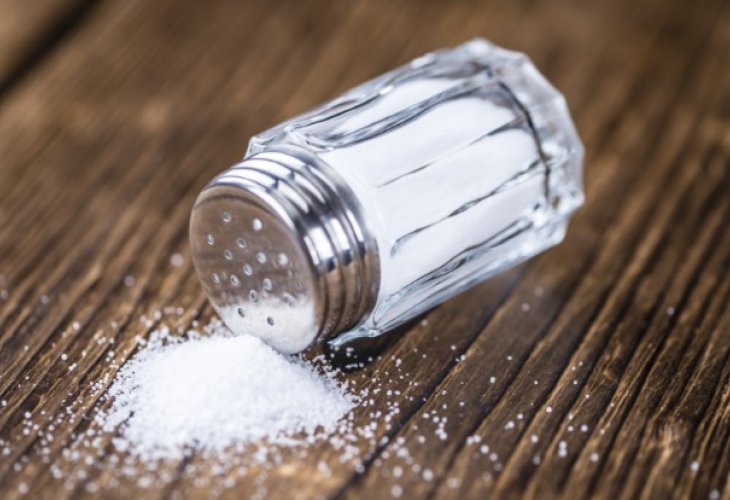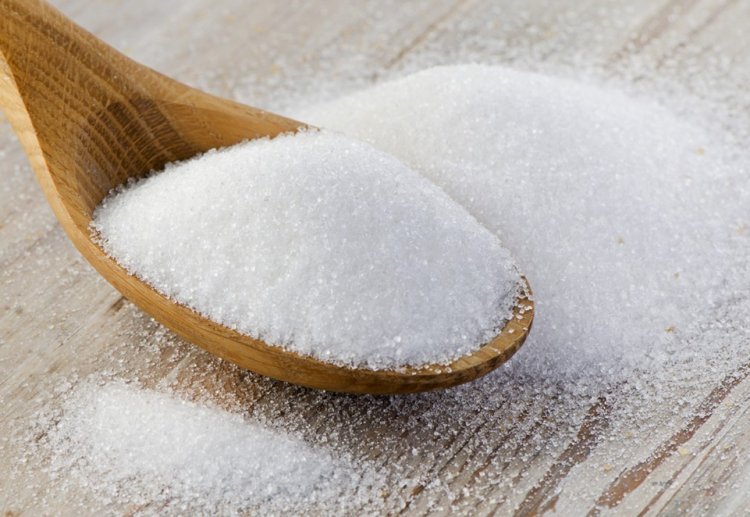Chemical Components, Non-Jewish Cooking, and Shabbat Observance: All the Halakhic Questions About the Salt and Sugar We Consume
Various methods exist for producing salt, each with its own halakhic issues. How is it possible that we consume without concern sugar and salt made by non-Jews?
 (Photo: shutterstock)
(Photo: shutterstock)Recently we discussed the kashrut of salt and sugar, and even how they are produced, but if we want to complete the topic of salt and sugar, it might be worth exploring another small point that raises interesting questions.
Besides the common methods of salt production in our country, there is another rather ancient method that was used by Arabs living on both sides of the Jordan River until a few decades ago. This method, no longer used in our region, involves extracting salt from salt deposits by channeling water, even fresh water, over salt rocks, and then into drainage and evaporation pits to accumulate salt chunks at the bottom. These chunks were then crushed and ground in mills.
This method still exists today, but in a more modern version. For example, in the United States, Canada, and several European countries, there are places where extensive layers of salt stretch beneath the earth's surface, potentially reaching thicknesses of up to three hundred and fifty meters. These salt layers formed following the drying up of lakes or seas. The salt contained in the earth is extracted by digging a deep shaft down to the salt deposits, and water is channeled into the shaft to dissolve the salt rocks. After the water has absorbed the salt, it is pumped out and evaporated until the salt recrystallizes. Interestingly, this method was described in the books of halakhic authorities as follows: "They draw water into molds like those used for baking loaves, and then place them in an oven for several days until it hardens and becomes a pillar of salt, and then they grind them." By the way, it appears this is the salt that the authorities referred to as "boiled water," to classify it as cooked salt, which may be added even to a primary vessel (kli rishon) on Shabbat, even according to Ashkenazi halakhic authorities.
It's important to know that today, salt produced by this method undergoes refinement, similar to the water desalination systems on warships, by introducing water into boiling vacuum tanks that evaporate all the water so that only the salt remains. Therefore, there is consensus that refined salt is considered cooked salt, which is permitted for reheating on Shabbat. However, of course, there are several nuances and halakhic details that must be discussed before deciding, such as whether we are concerned that after the salt dissolves in the dish, it should be considered a liquid, which would prohibit reheating it...
This method has its own kashrut issues, particularly given that the salt production process in this manner causes the salt to crystallize, requiring external assistance from various anti-clumping agents and the like, which we've mentioned before. But there is another interesting discussion raised by the authorities that requires some reconsideration: is it permissible for a non-Jew to produce this salt for us? Let us explain.
There is a simple and well-known halakhic principle that any food that cannot be eaten raw, and is only made edible through cooking, is forbidden to be cooked or prepared for eating by a non-Jew under any circumstances, due to our Sages' decree forbidding bishul akum (cooking by non-Jews). If so, how can we consume salt from anywhere in the world where it is produced by this method, when we clearly know that all salt production is done by non-Jews, and before the salt was extracted, the water was not edible, and the salt was not available at all? Perhaps this should be considered bishul akum? True, this question might be easily resolved by saying that the salt was already fit for consumption, just mixed with water, and the cooking process only removed the impediment and separated the salt from the water, so it's not considered a cooking process that would be forbidden when done by a non-Jew. Perhaps...
But if so, how do we explain why we consume sugar produced from sugar beets? Sugar beets are white beet fruit that is inedible without cooking, and only through cooking can sugar be extracted from them. If so, sugar production should only be done by Jews, yet in reality, we know that those who produce sugar and cook the beets are exclusively non-Jews.
Interestingly, unlike salt production, where we might consider the salt as standing independently within the water, with sugar, the authorities tended to say that it is truly like cooking fruit juice. If so, the question becomes even stronger: why do we permit the use of sugar when all production is done abroad?
 (Photo: shutterstock)
(Photo: shutterstock)The truth is, there are several explanations for this question. First, we'll mention the explanation of Maran zt"l in Halichot Olam (vol. 7, p. 131), that since "the main cooking of sugar is done by steam, and in this there is no prohibition of bishul akum," meaning that cooking done through smoking was not included in the Sages' decree. To clarify, when they said "smoking," they didn't only mean cooking with smoke, but any cooking done through hot vapor (steam) falls under the definition of smoking, which a non-Jew is not prohibited from cooking. Since all sugar production is done through steam systems, which are essentially concentrations of hot vapors, the cooking is considered smoking, and therefore there is no issue of bishul akum.
It's important to emphasize that although this is true halakhically, the practice in the Beit Yosef Badatz is to be stringent, considering cooking in steam systems as bishul akum, to satisfy the opinions of authorities who maintain that since the steam heats the metal of the pot, and the cooking is done because of the hot metal, this is also considered cooking "in the normal way" which raises concerns of bishul akum.
If so, how is sugar made kosher for those who are mehadrin?
Indeed, there is another explanation: even according to the opinion of Maran the Shulchan Aruch, who is stringent regarding anything that comes as a dessert or for finishing a meal, saying that it too is subject to the prohibition of bishul akum (not saying that the prohibition only applies to food eaten for the main part of the meal), nevertheless the status of sugar is less stringent because it is not considered food on its own, but only as a seasoning, since people don't typically eat it by itself, and therefore it is not considered an important food that the Sages decreed upon.
In conclusion, if we want to engage in deeper analysis, there are several more rationales, which are not always adopted in practice, such as the opinion that any food produced in a non-Jewish factory for business purposes is not subject to the prohibition of bishul akum. However, a decisive argument was presented by the head of the Badatz, the great Rabbi Moshe Yosef shlita, that anything that is secondary and nullified in water is not of concern regarding bishul akum, and this is why the authorities permitted drinking coffee made by a non-Jew, only because the coffee powder that is cooked in water is completely nullified in the water, even though it gives color and flavor, and the same applies to beer. If so, how can we prohibit sugar, which is made for sweetening drinks and is nullified in water?

